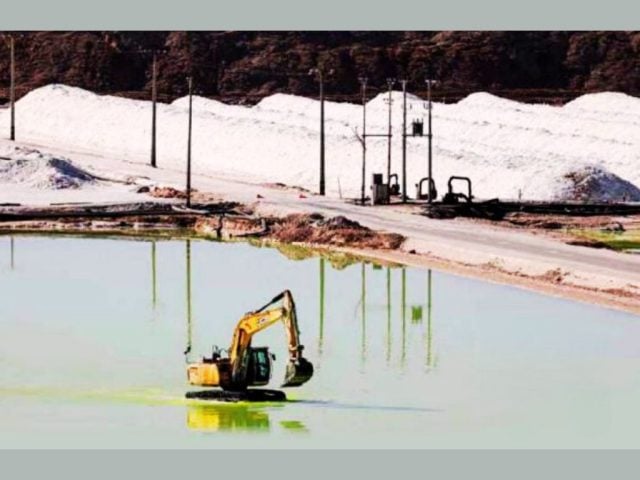Chile’s fiscal squeeze has more than one face. While public debate often fixates on controlling spending, an equally deep crack has opened on the revenue side. And there, the sector once expected to be a new pillar of the national economy—lithium—has become the key wild card.
El Ciudadano
The saying \»not just copper\» has taken on a stark, costly meaning for Chile’s public finances. Alongside Codelco’s weak copper results under Pacheco’s leadership, a steep drop in expected lithium income is blowing a budget hole few foresaw—rooted, critics say, in an opaque SQM–Codelco agreement and taxpayer-funded JP Morgan consulting fees.
The 2024 miscalculation: Lithium accounts for a third of the shortfall
The numbers are clear. In 2024, payments that the Production Development Corporation (Corfo) received from leasing the Salar de Atacama—Chile’s flagship deposit—explained roughly one-third of the error in projected fiscal revenues. That estimate, compiled by private economists, underscores how far forecasts overshot reality. The state counted on lithium funds that did not materialize, directly disrupting this year’s budget execution.
The outlook for next year is even murkier. When the 2025 Budget was drafted, lithium prices had stabilized but at levels far below the boom years. Adding to the concern is a lack of transparency: there is no clear public tally of what was actually collected in 2024 from lithium-specific mining taxes and lease payments, according to El Mostrador.
The result is a national budget caught in a vise. On one side are revenues—especially from lithium—starting from an overstated base. On the other are growing spending commitments driven by social programs and investment. The gap complicates economic management and narrows the government’s room to maneuver.
The SQM–Codelco deal: projections out of step with market reality
At the center of this perfect storm is the strategic agreement between Codelco and SQM to extract lithium from 2025 to 2060—along with provisions that would leave a significant share of the business in the hands of dictator Pinochet’s grandchildren. The core issue is that the deal was negotiated and signed using price assumptions that are nowhere near today’s market conditions.
Several mining analysts argue that in this lower-price environment, the projected figures and state benefits embedded in the agreement must be urgently updated. What was once hailed as a win to secure future rents now looks like an overly optimistic calculation that may not translate into the expected cash flows.
Given the evidence, no final agreement between the state and SQM should be signed until values are updated—and it may no longer be in the country’s interest at all. An alternative is to let the current contract expire, regain 100% control of the Salar, and prepare a strategic lithium tender that prioritizes technology investment to boost domestic value-add instead of exporting it.
El Ciudadano

